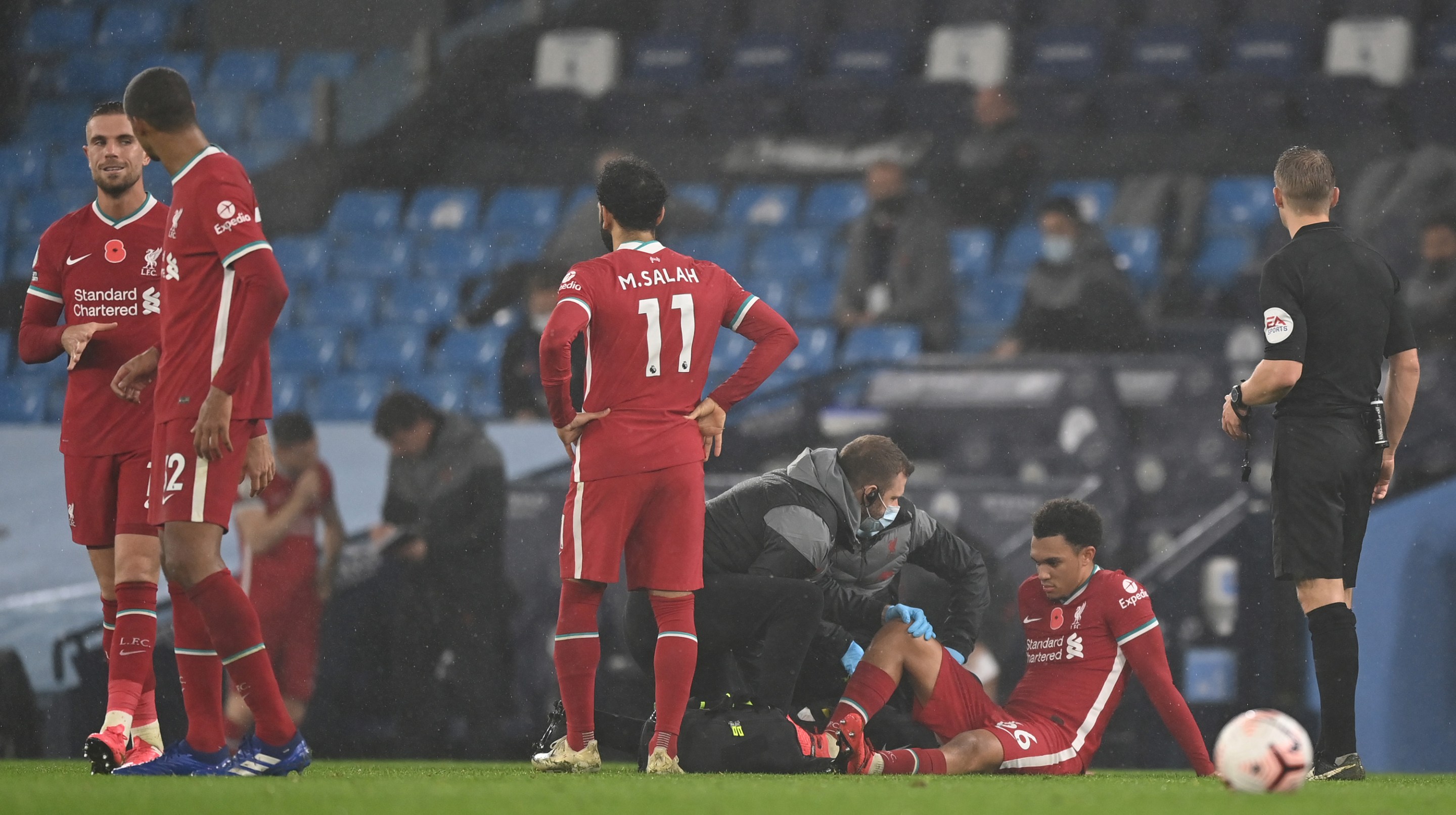Sunday's Liverpool-Manchester City showdown was noteworthy more for its potential long-term impact than for the 1–1 scoreline. It's not just that Pool Boys right back Trent Alexander-Arnold picked up a hamstring injury that is expected to keep him out for about a month. It's more that the 22-year-old's injury highlighted an issue, later reinforced by both Liverpool manager Jürgen Klopp and his City counterpart Pep Guardiola, regarding the Premier League's decision to forego the five substitutions rule adopted by most of European soccer during this pandemic-afflicted season.
When soccer came back from the coronavirus break last season, it did so with a significant rule tweak: major soccer leagues added two more substitutions in hopes of counteracting player fitness concerns after the layoff and fixture congestions. It was not a universally beloved change, though the reasoning behind it was sound. The main argument against the shift was that it allowed bigger clubs an undue advantage, since big clubs have stronger, deeper benches.
However, that competitive advantage for richer sides should not stand in the way of bringing the five substitutions rule to English soccer. It is a position both Klopp and Guardiola stumped for after Sunday's match. Klopp called the potential rule change a "necessity," not an advantage, while Guardiola went further, describing Alexander-Arnold's injury as a "disaster":
"All around the world there is five substitutions. Here we believe we are a special league with just three players, we don't protect the players. Look at Trent Alexander-Arnold, an international English player, he is injured. That's why it is a disaster."
(Guardiola would know, too, as City is dealing with its own injury crisis, headlined by striker Sergio Agüero's spate of injuries that have kept him out of all but two of City's league games.)
The biggest obstacle for proponents of increasing substitutions to five in the Premier League is that it's still unpopular among English clubs, and would therefore need a radical shift in perception before passing. Any team can propose the rule switch at any time, but it would require 14 of the 20 Premier League clubs to accept it in order to become the new standard. According to Sky Sports, the proposal has already been shot down twice, making it "highly unlikely" that it will pass if put forth again.
However, there is hope: the Professional Footballers' Association, England's players union, has now thrown its weight behind the push for five substitutes. Which makes sense, seeing as its members are those most affected by the lack of consideration for player welfare, regardless of any possible competitive advantage gained by deeper clubs. And some of the smaller clubs are seeing movement towards approving the change. West Ham United manager David Moyes first recommended to his board that they turn down the proposal, but has changed his mind after seeing the injuries pile up this season:
"I really didn't expect so many injuries. No parties have been willing to give anything up in terms of competitions or matches. So, while I still think it benefits bigger squads and clubs with bigger budgets, I would consider the change back."
It's still going to be an uphill battle, though, and it probably doesn't help that two of the three biggest clubs in England are the ones leading the charge for swapping to five substitutions. However, the Premier League schedule, already one of the more congested in the world due to the existence of two different domestic cup tournaments, will not ease up for the rest of this compact season.
That will, in turn, likely affect those same small clubs that are currently against the change. A deeper squad will become the same advantage it always is, although perhaps it will be even more so this year. After all, Liverpool was able to replace the best center back in the world, Virgil van Dijk, with Joe Gomez and Joel Matip, both of whom are high-quality, international-level players. Can Aston Villa do the same if, say, Jack Grealish goes down for an extended amount of time due to over-exertion?
This season's title is going to be won not by a team flying high, as Liverpool did last season, but more likely by the team that best prevents or manages its injury and fatigue troubles. Adding two more substitutions could help alleviate that and give all clubs a fighting chance at actually fielding their best players for the majority of the campaign.






